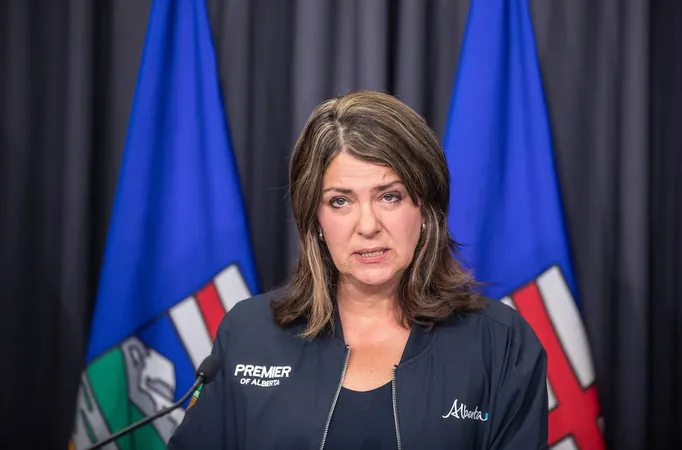
Alberta Premier's Controversial Vaccine Opt-Out Amendment Sparks Heated Debate
2024-09-25
Alberta Premier's Controversial Vaccine Opt-Out Amendment Sparks Heated Debate
In a bold political maneuver, Alberta Premier Danielle Smith has announced plans to amend the province's Bill of Rights, allowing individuals to opt out of vaccinations and other medical interventions. This proposal comes as she prepares for a crucial leadership review less than six weeks away.
In a recent social media video, Smith outlined her United Conservative government's intentions to introduce legislative amendments within the next few weeks. While she did not provide specific details on the changes, she assured Albertans that these updates would position the province as a “beacon of freedom.
Smith, who rose to power partly by opposing COVID-19 restrictions including vaccine passports, emphasized that "no Albertan should ever feel pressured into accepting a medical treatment without their full consent." This statement encapsulates her commitment to personal choice in healthcare, a principle that resonates strongly with her political base.
However, experts suggest that this move is not just about medical freedom. Lori Williams, a political science professor at Mount Royal University, argues that Smith's push is an attempt to solidify her standing with the far-right faction of the United Conservative Party (UCP). With a history of past party leaders—including her predecessor, Jason Kenney—facing backlash and losing their positions, Smith's legislative proposal may be a strategic move to secure support ahead of her leadership vote in November.
Political observers have noted that despite the popularity of such measures among the extreme right, there are potential consequences for more moderate party members. "Polling indicates that this could lead to a divide within the UCP, harming Smith's prospects in the long term," Williams warns.
The announcement is particularly timely given Alberta's contentious vaccination policies. Reports have previously indicated that Smith's government intentionally scaled back public health immunization campaigns against COVID-19 and the flu. Furthermore, she initiated reviews of the province's pandemic response led by critics of vaccination, raising eyebrows about the future direction of healthcare in Alberta.
In a twist, experts have voiced concerns that the proposed amendments could inadvertently hinder public health measures. Lorian Hardcastle, an assistant professor in law and medicine at the University of Calgary, expressed worry that such changes might limit employers in healthcare settings from mandating vaccinations. "This could severely diminish the province's ability to respond effectively to future public health crises," she stated.
In addition to vaccination rights, the amendments aim to protect gun ownership rights, allowing law-abiding citizens to "legally acquire, keep, and safely use" firearms. Smith accused the federal government of targeting responsible gun owners through its ban on certain weapons. She also aims to ensure that no one can lose their property without due legal process and just compensation.
However, political opponents, including New Democratic Party Leader Naheed Nenshi, criticize these proposals as distractions from more pressing issues facing Albertans, such as the rising cost of living and the deteriorating healthcare system. Nenshi argues that Smith's focus on appeasing anti-vaccine constituents detracts from efforts to support families seeking better care for their children and those grappling with mental health and addiction challenges.
As the province stands on the brink of significant policy shifts, Albertans are left questioning the implications of these amendments for public health and safety, as well as the political landscape for years to come. This unfolding drama is not just about medical freedom, but also about the very foundation of governance in Alberta and the future trajectory of its healthcare policies.









 Brasil (PT)
Brasil (PT)
 Canada (EN)
Canada (EN)
 Chile (ES)
Chile (ES)
 España (ES)
España (ES)
 France (FR)
France (FR)
 Hong Kong (EN)
Hong Kong (EN)
 Italia (IT)
Italia (IT)
 日本 (JA)
日本 (JA)
 Magyarország (HU)
Magyarország (HU)
 Norge (NO)
Norge (NO)
 Polska (PL)
Polska (PL)
 Schweiz (DE)
Schweiz (DE)
 Singapore (EN)
Singapore (EN)
 Sverige (SV)
Sverige (SV)
 Suomi (FI)
Suomi (FI)
 Türkiye (TR)
Türkiye (TR)